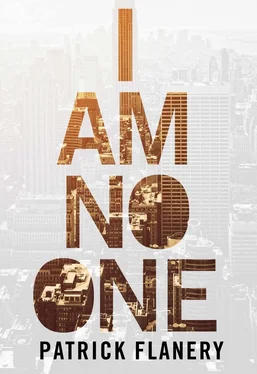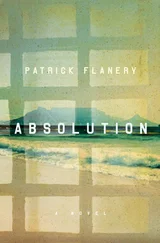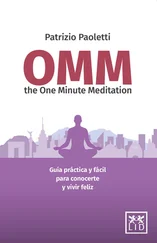Although the exam period finished on December 19th, I have decided to stay in the city for the holidays, hunkering in my warm apartment as the Polar Vortex again swings into force. One morning, a few days before Christmas, after a sober night indoors watching movies and eating takeout Vietnamese, Ernesto buzzes from downstairs to say that someone has dropped off a package for me, and so, on that frigid day, I open yet another box and find inside a shiny black plastic block, the size of a hardback edition of War and Peace or The Collected Earlier Poems of William Carlos Williams or Crime and Punishment , although in fact what it reminds me of more than any book is the humming monolith in Stanley Kubrick’s 2001. I notice the cables and understand this is some kind of external drive, and although I worry for a moment that connecting it to my computer may mean opening myself to a virus or some heretofore unimagined level of surveillance, I decide nothing could be worse than what I am already experiencing.
When I connect the drive and open the icon on the desktop, I am, at first, confused. There must be a glitch, because the window that opens presents an exact copy of the files and folders on my computer’s own desktop. Only a few more clicks and I understand that the drive contains not only a complete copy of my computer’s contents, but one which is current to this very day, the last changes being recorded at 7:52 this morning.
Assuming this is still the work of Michael Ramsey it is clear to me there is now only one possible meaning: a warning that everything I do, write, read, view online, even what I do offline , is accessible. When I am connected to the internet, whoever they are can read everything I have written, even the documents I regard as profoundly private: the diary I keep in a word-processing file document, drafts of occasional poems, pieces of correspondence that, in my old-fashioned way, I sometimes print, sign, and send off in envelopes to their recipients. There is no longer any such thing as privacy, unless one writes letters and diaries and poems longhand, as I write this document now, and even so, our government has long made a habit of scanning the exterior of all mail. It would be clear to the watchers to whom I am writing and from whom I am receiving mail even if they cannot necessarily discern the contents of the letters themselves. The phone Meredith gave me, this, too, has turned me into a trackable subject, someone whose location can be so precisely pinpointed that Michael Ramsey may now find me throughout the day, any given day, anywhere I go. The phone, I understand, is why he has been showing up all over the city, not a bad penny but a red flag, mobile and rippling, trying to catch my attention. And then, I think of the message he left on my old phone, stashed in my refrigerator, on that strange evening a few weeks ago, a message that was also a warning: ‘Phones listen.’
Even when turned off? Do phones listen even when they appear to be powerless?
I realize now that in writing this, in naming Mr. Ramsey, I may be putting him in some kind of danger of reprisal by whoever employs him. Although I did not think about the implications of revealing his identity at the start of this testament, how many days or weeks ago I began writing it, this was not my intention. I mean him no harm. No harm should come to him.
After the arrival of the box this morning, I phoned Dr. Sebastian and asked if she could still make time to see me before the holidays.
‘Come now, if you can,’ she said. ‘I’m going away tomorrow.’
As I walked from the station on Broadway to her office on West End Avenue, I stopped to pick up a token of the season, a basket of pears and nuts, almost as if I were a suitor.
‘My patients do not usually bring gifts,’ she said, leading me into the consulting room, which I remembered as more austere than it is. The white walls I had stored in my memory are instead dove gray, the wooden floors covered in Chobi rugs, the furniture a mix of nineteenth-century antiques and midcentury Danish chairs. African masks decorate one of the walls. I remembered none of it from my first visit.
‘I wanted to make up for the short notice, and the time of year.’
‘I am secular, Jeremy, but thank you nonetheless.’ She put the basket to one side and rather than sitting behind her desk as she had on our first meeting, took a seat next to me in one of the two chairs intended for patients. ‘So the scans look good. No anomalies. But perhaps, if there are still questions, you should see someone else. I would be happy to make a referral.’
‘To a psychiatrist?’
‘Or a psychotherapist. Or both.’
Friends suggested I go into therapy when my marriage to Susan broke down, but I concluded I was better off running and reading to deal with the depression. I stopped running at some point between deciding to leave Oxford and reestablishing myself in New York, and reading on its own is no longer enough to deal with the anxiety. Reading, in fact, produces its own forms of anxiety. Worries and preoccupations suggested by some other person’s prose start flurrying into my brain, preventing me from sleeping through the night. I realized I had been sleepless off and on for weeks, medicating myself with scotch and Miles Davis and midnight screenings of old Coppola and Alan J. Pakula and Sydney Pollack flicks from my childhood, telling myself that The Conversation or Klute or Three Days of the Condor were really research, preparation for the class I was teaching on the Cinema of Surveillance, and trying to convince myself that no one had thought adequately about the formal techniques used in the films, techniques that might be seen as outgrowths of a changing cultural landscape in the 1970s, the decade in which film, video, and audio surveillance were becoming commonplace, form and content united, a consequence of historical forces, as much about advancements in technology as the entrenchment and expansion of the military industrial complex and its imbrication with the intelligence community. This was what I did to help myself sleep. This is why, I am beginning to think, I remain unable to sleep. My mind will not stop churning.
‘I’m not interested in talk therapy. I don’t think there are any traumas that might explain what’s been happening. I’m fairly certain I’m not delusional or suffering from blackouts. I’m anxious and a little depressed, but probably not significantly more so than most people who find themselves whiplashed by cultural dislocation. No worse, in fact, than most New Yorkers.’
‘We could always try an anti-depressant, or even a mild anti-anxiety drug. Some people need it, others find they do not. People of high intelligence, like you, Jeremy—’
‘For the sake of argument,’ I said, interrupting her, ‘if the problem were in my brain, what might it be?’
Dr. Sebastian raised her chin, holding my gaze as she moved her head, and at the same time her hands reached across to her desk for the ledger in which she had taken notes on our previous meeting. She glanced down, opened to the relevant page, and looked up again.
‘It was just an apparent memory lapse, correct?’
‘That was the first issue. Since then I’ve been receiving boxes of very intimate files. It has been suggested to me by some members of my family that I might have sent myself the files, to shore up my belief in what they judge to be a paranoid delusion.’
‘You have no memory of sending yourself the files?’
‘None whatsoever. Not even the faintest glimmer of a memory. Every box that arrives is a surprise, and a horror.’
‘And so, you want to know if you could be doing this, sending yourself these files, and yet have no memory of it each time?’
Читать дальше












